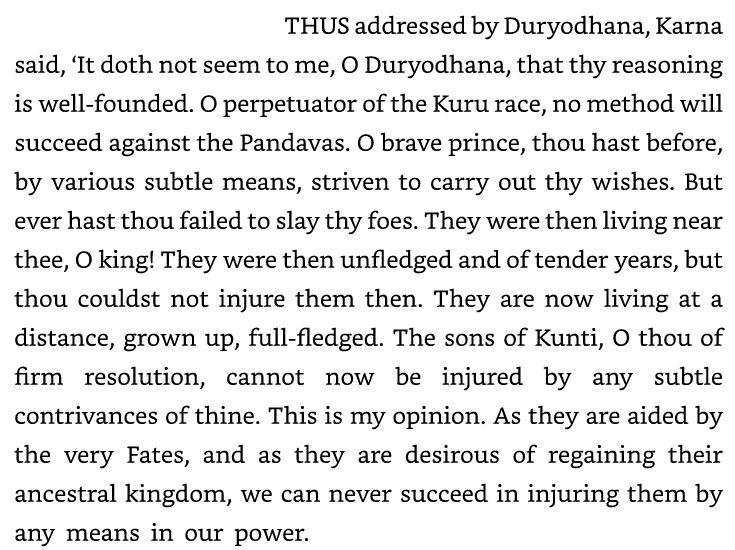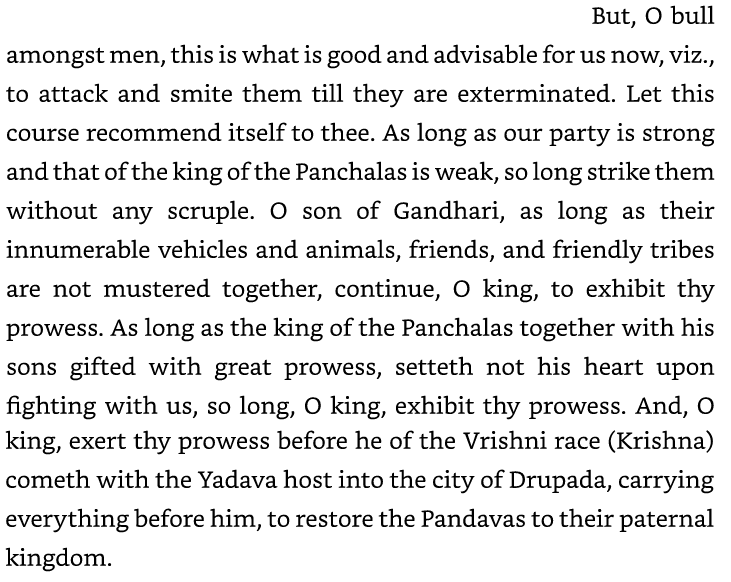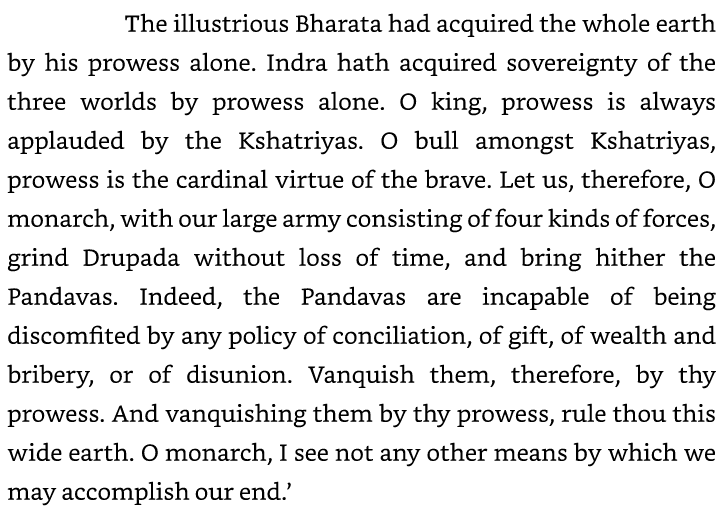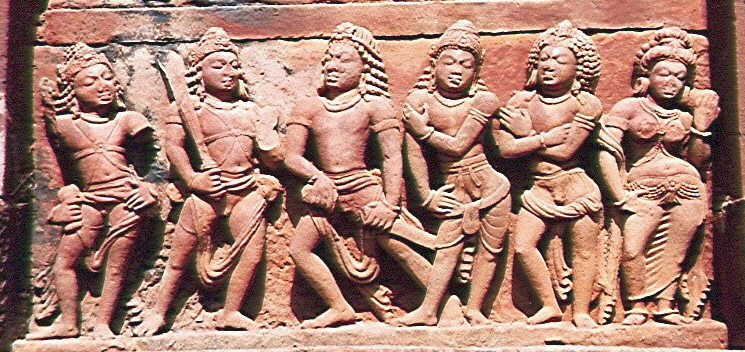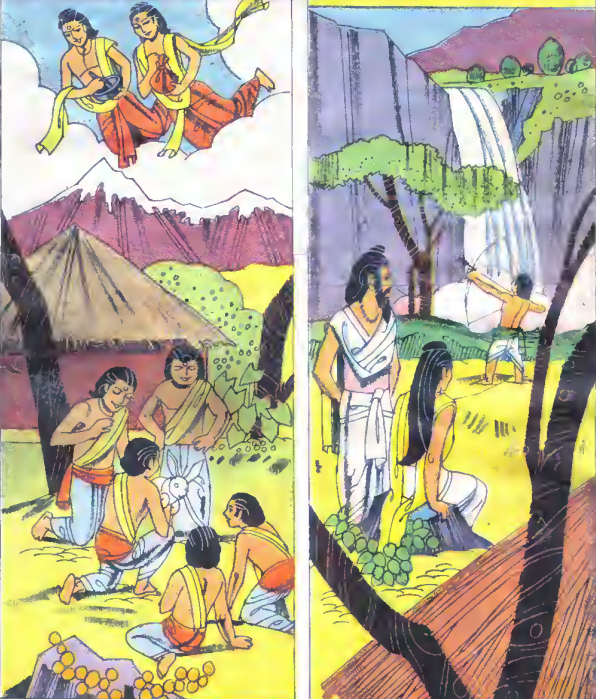
Table of Contents (The Complete Condensed Mahabharata in Simple English)
Previous Post: Krishna-Dwaipayana Vyasa’s Birth
| Note: This post is a short and quick account of how the main characters of the Mahabharata were born. I have mentioned the circumstances of everyone’s birth but summarised the character description provided in the unabridged Mahabharata. You can read the full character descriptions here. |
Bhishma was born to Devi Ganga and the King Shantanu.
Karna was born from the union of Kunti and Surya Deva. He was born with natural armour and bright earrings.
Sri Vishnu, the all-pervading soul, himself was born to Devaki and Vasudeva in the race of Andhaka-Vrishnis for the benefit of all the creatures in the three worlds.
Satyaki and Kritivarma were born in the Vrishni race. Satyaki’s father was Satyaka while Kritivarma’s father was Hridika. Both of them were strong, well-versed in all branches of knowledge and always obeyed Sri Krishna.
Drona was born from the seed of the great rishi Bharadwaja. The seed was kept in a pot and that’s how Drona (the pot born) got his name.
The twins, Kripi and Kripa were born from sage Gautam’s seed which had fallen on a clump of reeds.
Ashwatthama was born to Kripi and Drona.
Dhrishtadyumna was born from the sacrificial fire in a yagna organised by King Drupada. He was born with a bow in his hand and he was destined to destroy Drona.
The excellent and beautiful Draupadi (also known as Krishnaa) was born from the same sacrificial fire.
From King Drupada and his wife was born a daughter called Sikhandin who later transformed into a male with the help of a Yaksha named Sthuna.
Sakuni was born to Suvala. Cursed by the gods, he worked against virtue and was the cause of death for many people.
Gandhari was also born to Suvala. Both Gandhari and Sakuni were knowledgeable in the art of acquiring worldly profit.
Dhritarashtra was born to Ambika (Vichitravirya’s wife) and Rishi Krishna-Dwaipayana Vyasa.
Pandu was born to Ambalika (also Vichitravirya’s wife) and Rishi Krishna-Dwaipayana Vyasa.
Vidura was born from the union of Ambika’s maid (called Parishrami) and Rishi Krishna-Dwaipayana Vyasa. He was an incarnation of Dharma but he was born to a maid due to the curse of a brahmin who was falsely accused of theft because of the way Dharma’s law worked on earth.
The Pandavas were born to Pandu and his two wives (Kunti and Madri). Yudhishthira was born to Kunti and Dharma (the god of justice). Bhima was born from Kunti and the God of wind (Marut). Arjun was born from the union of Kunti and Indra Deva. The twins, Nakula and Sahadeva) were born to Madri and the Ashwins.
Dhritharashtra and Gandhari gave birth to a hundred sons, with Duryodhana as the eldest. Another son called Yuyutsu was born from Dhritharashtra and a Vaishya woman. out of the 101 sons, 11 were maharathas.
Amoung the Pandavas’ children, Abhimanyu was born from Subhadra (Sri Krishna’s sister) and Arjuna. Draupadi and Yudhishthira had a son called Pritivindhya. Draupadi and Bhima had a son called Sutasoma. Draupadi and Arjuna had a son called Srutakirti. Draupadi and Nakula had a son called Satanika. Draupadi and Sahadeva had a son called Srutasena. Bhima had one more son with Hidimba called Ghatotkacha.
| Note: Arjuna also had children from Ulupi (a Naga princess) and Chitrangada (the princess of Manipura). However, these progeny are not mentioned at this point, in the Mahabharata. I have mentioned it here for completeness. |
Next Post: Why Did The Celestials Take Birth On Earth As The Pandavas And other Beings







